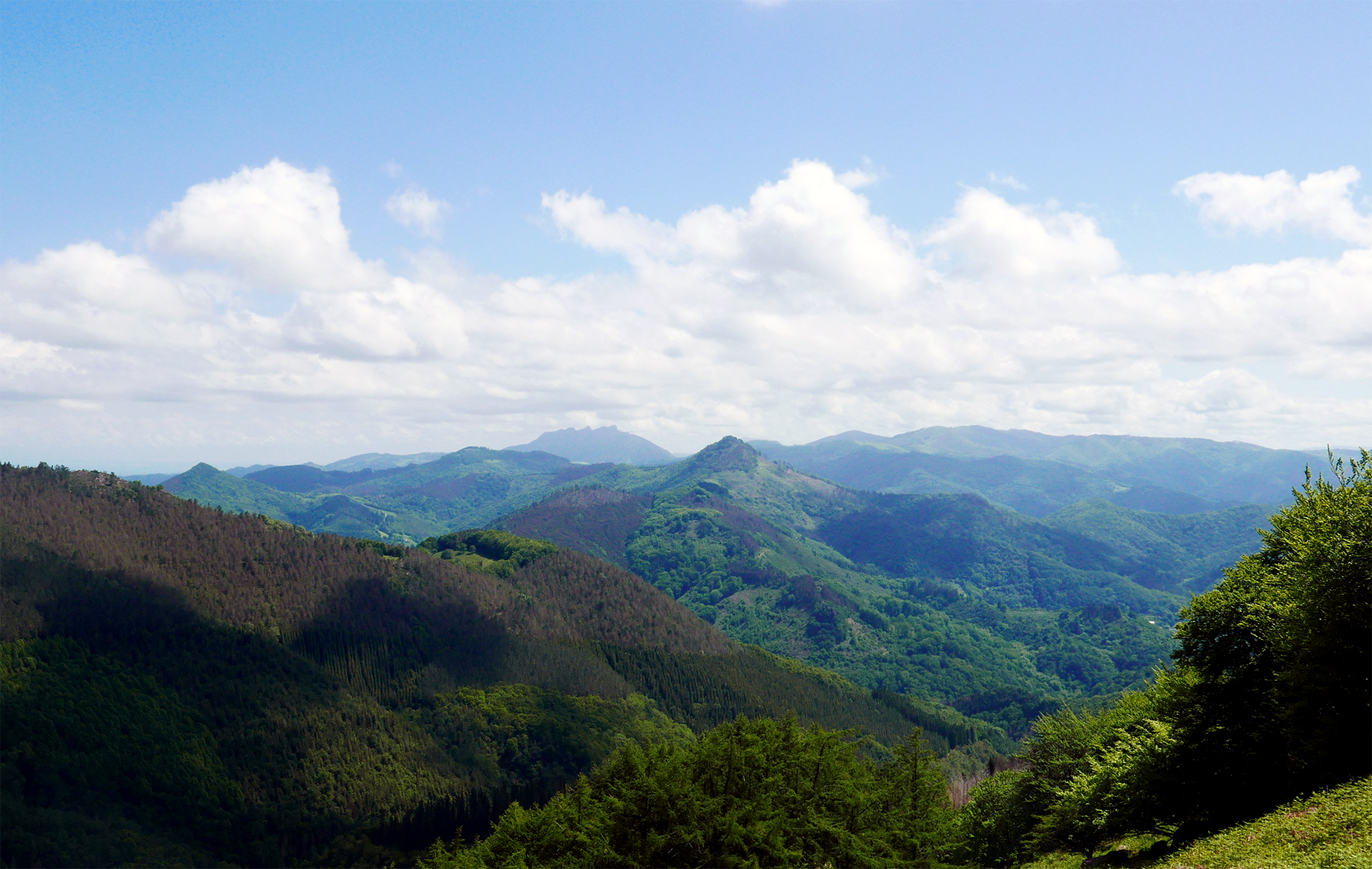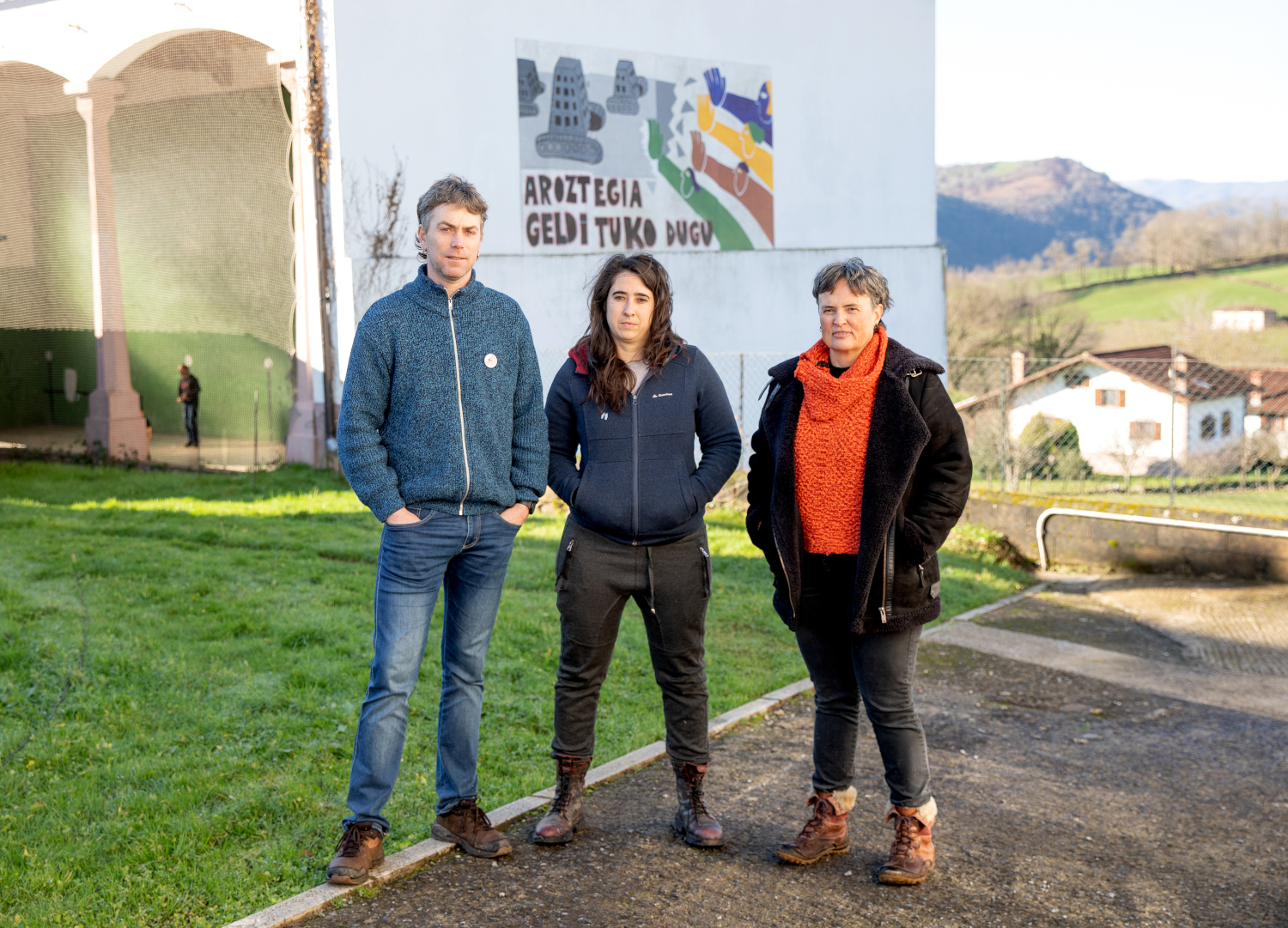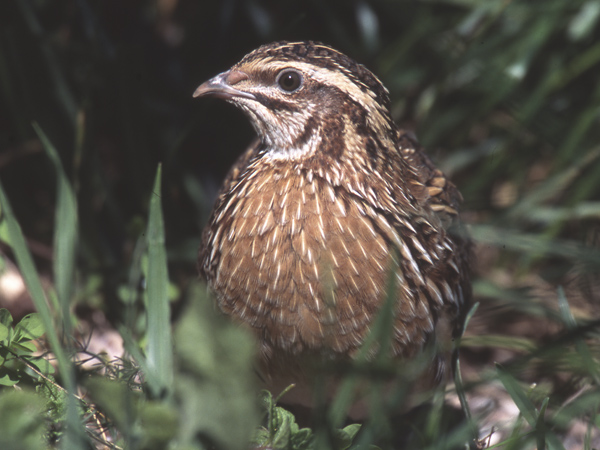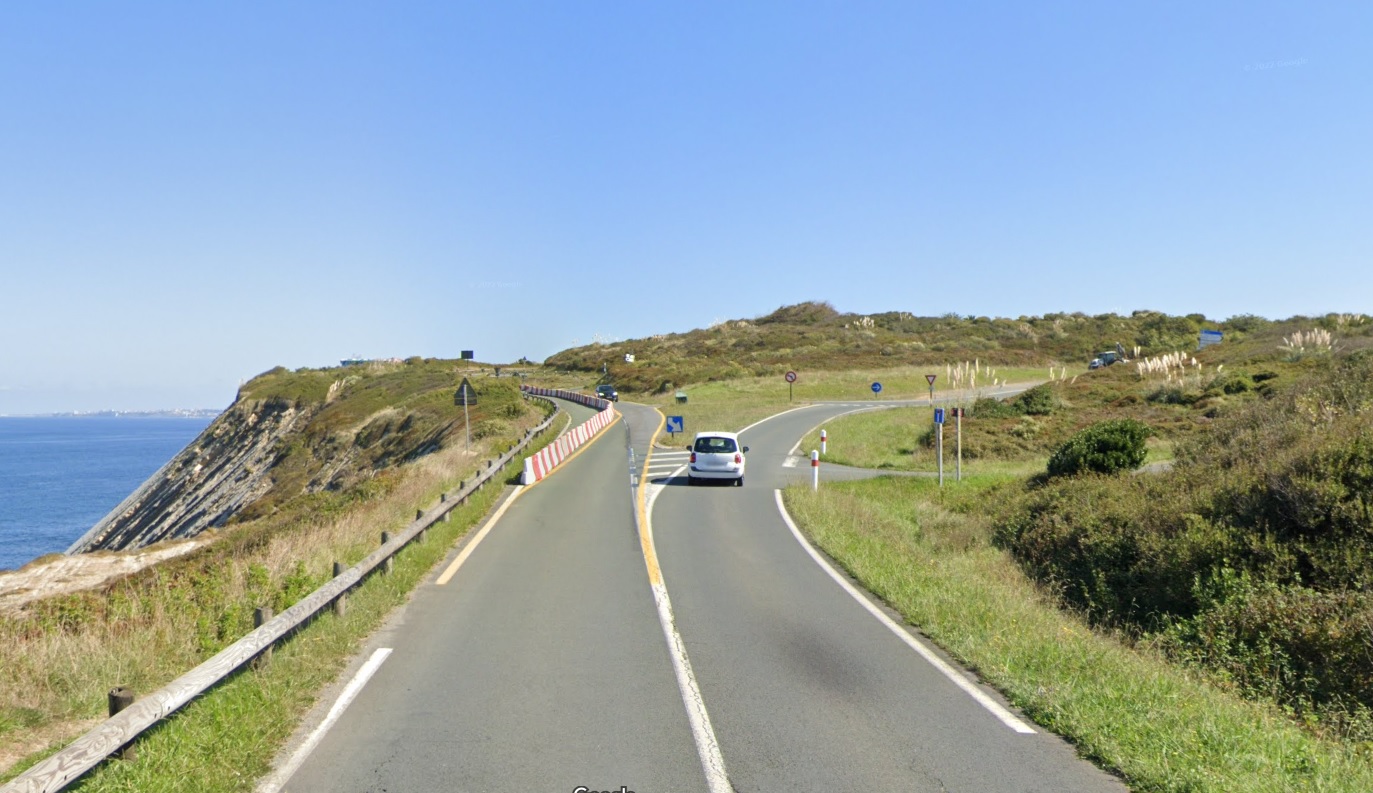The defense of the Earth is the struggle of life and sovereignty
- A big wind project here, a photovoltaic there, a macrofarm a little bit more, a macroncalendar a little bit further, a corner incinerator, a macrotrenbidea in the middle ... As the projects of the multinationals that damage and jeopardise the environment and with it life are multiplying, local citizen groups are also being activated to deal with them. Among them, networks of relations are being built and more than fifty groups have held a joint call for demonstration on 20 May, in Vitoria at 18:00 in Plaza San Antón. We have met with the conveners.
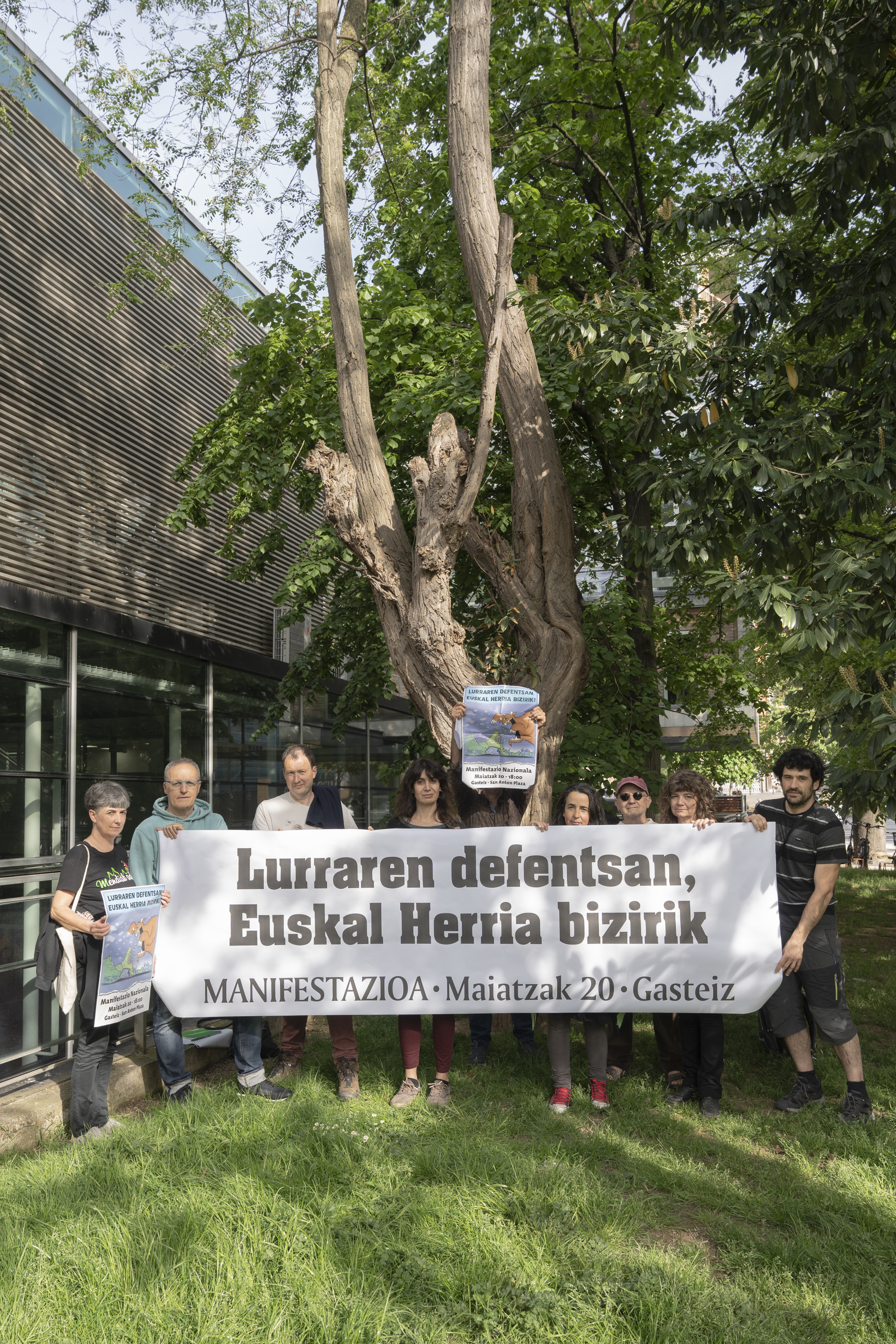
These groups have brought to the forefront the defense of the Earth, as do native peoples around the world. In fact, colonization has reached the mountainous and rural area of the Basque Country. The capitalist system has met the limits of the Earth and has brought us to extreme weather situations, loss of biodiversity, depletion of materials... Those who take advantage of it economically seem to prefer to assume and exploit with the same logic the few areas that, far from changing the system, are left unindustrialized, however, surrounded by green ties and presented as a solution to the problem.
We have given the floor to three members who organize the demonstration: Rebeka Gonzalez de Alaiza and Itsaso Balza de Vallejo are part of the Montes de Álava Askatasuna and Araba Bizirik and Gaizka Otamendi belongs to the Sañu Bizirik group. They warn us that this "gift" wrapped in green ribbon is a hole that will mortgage the future, that along with the earth is at stake the sovereignty of our food and our life, and that the exit from this multiple crisis brought by the capitalist system is right in the other direction: the change of model. Why has the election campaign not been debating these issues that are boiling?
Weaving relationships and readings
This demonstration is the first joint action by all groups against macro-projects. Itsaso explained how the network has spread: "The Alava Mountains meet in Aska to fight the wind and the TAV. In Tuesta came the project of a hydroponic greenhouse and Araba Bizirik emerged with the addition of the movement against photovoltaic power plants". Since then, the network has gradually been woven between the different groups of the Basque Country. They explain that this network is very necessary to "join forces, share information and stop mega-projects".
Themes and perspectives are becoming part of the battle they share. Gaizka has thus summarised the ideas it brings together: "The defense of land, food sovereignty, and we question this economic model, because it is the one that has brought us to this situation." Rebeka adds: "Also the maintenance of the territory. This movement is born to raise awareness of our territory. For us, biodiversity is another pillar: we have to leave what we have received to future generations, we cannot reduce any further. Another axis is people's decision-making ability, centralizing decisions. In the case of Álava, in the cases in which the wind power plant project has been presented, the councils have refused. The Councils are the owners of the land and those responsible for its management. The ownership of these lands is not private and as a result they have been better maintained so far".
"These projects are being carried out with the aim of pulling the cart of the multinationals and also citizens are not allowed to discuss this
issue" Gaizka Otamendi
Gaizka warns that the role that citizens, administrations and businesses are playing is different in this land conflict: "These projects are being carried out with the aim of pulling the cart of the multinationals and furthermore citizens are not allowed to discuss this issue. We want citizens to own our land." Rebeka adds: "We depend on companies and the administration is also facilitating their journey and processing. In principle, it is companies that are deciding where to put the projects."
Takes care of farmland and places of biodiversity residence
"All these macro-projects are being projected in places that are very fragile for biodiversity. Putting in the mountains is what should not be done just," Gaizka said. They argue that these projects should be implemented in industrial and already artificialised areas. Gaizka follows: "In Gipuzkoa we live 254 people per square kilometer and it does not reach 4% of the food we consume. Do we have the primary sector totally reduced and what do we have to do, remove the remaining land and make it available to the multinationals? Close the choice to foods that can be produced tomorrow? ". Rebeka warns that the energy crisis will require access to food nearby: "By placing a solar plate on fertile soil, we will not eat any of it. Oil is in decline, we have to think about where our food comes from and that in the future we will have to do it here: cut it with fossils, eat seasonal food...".
.jpg)
Itsaso recalled that technology does not represent nature, but they want to bring projects to natural spaces: "They will remove so many trees to install a wind power plant. What makes a forest, in the water cycle, in carbon, etc., doesn't make any machine. It's impossible." Rebeka continues: "These projects fragment territories. An ecosystem needs, in order to stay healthy, close ecosystems to reproduce and be genetically rich, as they are able to adapt to the environment and cope with the changes that are coming. The barriers are impoverishing vegetation and animals, as there are no relationships between species of the same species and gradually these ecosystems are weakened. We need all species to make nature work. Ending a small species can be a very serious change."
Rebeka recalls that as part of nature and living things people living in the mountains are also harmed: "These projects are marking the areas to be sacrificed. That is also excluding some people from where we live. There are two types of colonialism: on the one hand, we continue to satisfy our well-being at the expense of the peoples of the global South and they create marginalized areas, whole villages are sent out of their lands, and now the same is being done within Euskal Herria, marking the areas to be sacrificed. Colonialism has reached the inside of the house." Gaizka follows: "They want to send us from the countryside, they want everyone to enter the urban spaces. They want to put an end to rural knowledge and culture. For us, land is a way of living and in a very short time that living land has diminished."
"Rural areas are necessary for everyone, also for people living in the city"
Itsaso Balza de Vallejo
For Itsaso, there is another reason for macro-projects to be carried out in rural areas: "As there are fewer people in rural areas, politicians may think that these projects will not receive as much response. But rural areas are necessary for everyone, also for people who live in the city."
“This is not a transition”
Itsaso says that these macro-projects will not solve a multiple crisis: "The story they sell us is not going to fix anything, even though it's all about wind and photovoltaic, some of them are going to fill their pockets and the problem is going to stay there, or we're going to have more and more problems." Gaizka confirms: "With this economic model, the problem is endless. Although wind turbines are installed in all the mountains, it will never be enough, because the logic of growth is in the center." Itsaso added: "These projects will take and bring their resources, but there will be nothing left here." Rebeka explained that "it is preparing to bring electricity to France and Germany. We're going to be an energy colony for them." Gaizka adds: "We will soon be building electric highways to export renewable energies. It is said that the Spanish state will be the European "battery" and the Basque Country in part".
“Energy companies are making their transition, not the eco-social transition”
Rebeka Gonzalez de Alaiza
Rebeka believes it is not a transition: "Energy companies are making their own transition, not an eco-social transition: now they want to get the benefits they get from fossil with renewables, but with our money, which Next Generation funds will bring us debt and will be a great burden for future generations, we are eating their opportunities." Gaizka calls this move "robbery": "They do business with our money and take away our land for their benefit. It's a round business." Rebeka states that this approach to environmental destruction is only a short-term patch: "In 20-30 years, once all the mountains and agricultural lands have been colonized, there will be no fossils to regenerate the renewable plants and there will be all the infrastructures left, losing biodiversity along the way, lost the communal, lost the peoples... and what will we eat? ".Gaizka replies: "Synthetic meats, hydroponic tomatoes... is your proposal." They say that losing the land is losing sovereignty for life: "If we don't have territory, if they are aware of our territory, what is the struggle left for us? Our diet and our way of life will depend on them" and they have remembered this motto: "Without land there is no struggle or struggle without land."
The three members reaffirm that the ecological and social transition must be done in the opposite direction: "Considering the limits of the planet." According to Gaizka, "this economic model has brought the climate to this emergency and to the loss of biodiversity. You can't go on like that." Rebeka gives it its name: "Capitalism wants everything: it wants land in our hands, now it opens that front to give continuity to the system, because capitalism is based on the exploitation of nature and people. The transition goes through a model change, yes or yes." Gaizka is convinced that change will necessarily come: "We want and not, within a few years our life will undergo a very profound change. Fossil and mineral energies are running out and there is no other source of energy to replace it. The growth will come, not because we want it, but it will come, and maybe it's already coming and we don't realize it."
Rebeka presents the challenge of transition: "There are two paths: one of the elites, who are acquiring everything and continue with their life as if nothing happened; the gap between them and us is increasing, among other things, because they are aware of what belongs to us. And the other way is to look at priorities and work on what we can meet with what we have, but for everyone. The approach must be global, for all. And we see the need to relocate the economy and produce energy locally. And to do all of this, we have to work our relationships, do things in a community way, put in place other ways of managing things without delegating to oligopolies..."
Message to political parties
The Euskal Herria Bizirik demonstration in defense of the territory has been convened on the eve of elections, according to Itsaso, "because we want to show that many people do not agree with what they are doing. And to put this issue on the table." The shock of the transition models has not been the subject of debate in the elections: "We see no aspect that has a concrete proposal to change the model. We are without shelter, we feel orphans in the Basque Country," said Rebeka. Gaizka adds: "Instead of defending the interests of politicians, it seems that they are often at the service of multinational companies. I think they are afraid to say that this model has given what needs to be done and we have to take another path. No one dares to hold this issue by the branches. Politicians have a lot of skill in patching the moment, and 20 years later, the next century has to pay for those patches that it had done before. I think they're going to do that." Rebeka notes that: "These political approaches are continuous and depend on business."
Eskoziako Lur Garaietara otsoak itzularazteak basoak bere onera ekartzen lagunduko lukeela adierazi dute Leeds unibertsitateko ikertzaileek.. Horrek, era berean, klima-larrialdiari aurre egiteko balioko lukeela baieztatu dute, basoek atmosferako karbono-dioxidoa xurgatuko... [+]
Ilbeltzeko igande goiz batez jo dugu Baztanera. Eguzkiak oraindik ez du Lekarozko plaza argitu; bertan elkartu gara Garbiñe Elizegi Narbarte, Itziar Torres Letona eta Ernesto Prat Urzainkirekin. Itzaletan hotz egiten du eta umorez goxatu dugu lehen agurra, hogei urtean... [+]
"(The purpose of the Oion Plenary) is clear, to legitimize by law the energy megaprojects with significant irregularities in the processing"
Last Wednesday we had a hard and unpleasant day, not only for Labraza, but also for all the towns where we are threatened by a wind,... [+]









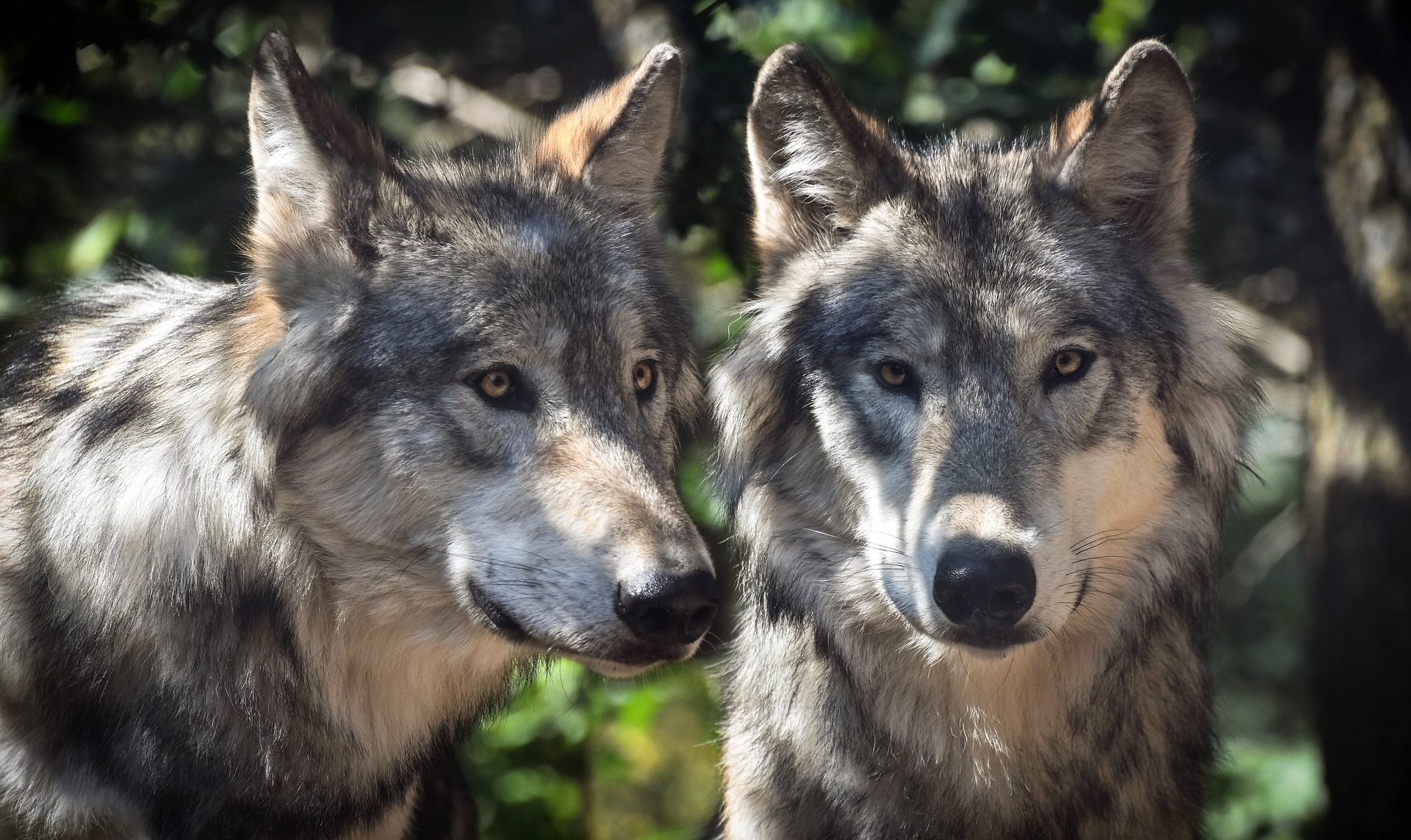
_Glaciar.png)
